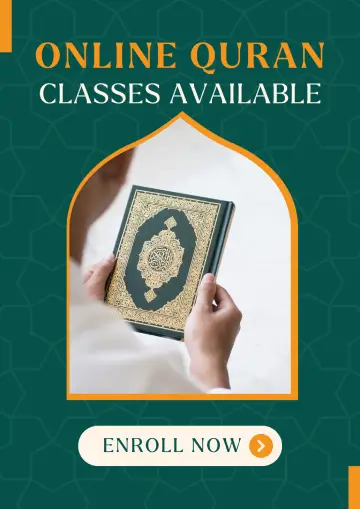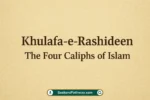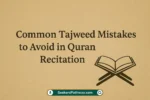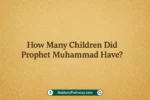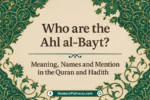Surah Al-Fatiha, also known as “The Opening,” is the first chapter of the Quran and holds a central place in Islamic worship. It consists of seven verses and is recited in every unit of the Muslim prayer (Salah). This Surah serves as a fundamental component of a Muslim’s daily life, encapsulating key themes of worship, guidance, and supplication.
Structure and Themes
1. Introduction to the Surah:
Surah Al-Fatiha is often considered a summary of the entire Quran. It addresses the core concepts of monotheism, worship, and divine guidance. The Surah can be divided into two main parts: praise of Allah and a supplication for guidance.
2. Verses and Translation:
- Verse 1: In the name of Allah, the Most Gracious, the Most Merciful.
Explanation: This verse emphasizes the importance of beginning every task with the name of Allah. The attributes “Most Gracious” and “Most Merciful” highlight Allah’s infinite mercy and compassion. - Verse 2: All praise is due to Allah, the Lord of all the worlds.
Explanation: Here, Allah is praised as the Creator and Sustainer of everything that exists. This establishes the relationship between the Creator and His creation. - Verse 3: The Most Gracious, the Most Merciful.
Explanation: This repetition reinforces Allah’s mercy and serves as a reminder of His attributes, which are essential for understanding His nature. - Verse 4: Master of the Day of Judgment.
Explanation: Allah is recognized as the ultimate judge, emphasizing accountability in the hereafter. This fosters a sense of responsibility in the believer’s actions. - Verse 5: You alone we worship, and You alone we ask for help.
Explanation: This verse establishes the core concept of Tawheed (monotheism) and the reliance on Allah alone for guidance and support. - Verse 6: Guide us on the Straight Path,
Explanation: This is a supplication for divine guidance. The “Straight Path” refers to the path of righteousness, which leads to Allah’s pleasure. - Verse 7: the path of those who have received Your grace; not the path of those who have brought down wrath upon themselves, nor of those who have gone astray.
Explanation: This verse distinguishes between those who are favored by Allah and those who have erred. It serves as a reminder to seek the company of the righteous.
The Two Parts of the Surah and Allah’s Response
In a Hadith narrated by Abu Hurairah, the Prophet Muhammad (peace be upon him) mentioned that Allah said regarding Surah Al-Fatiha:
“When My servant says: ‘Alhamdulillahi Rabbil ‘alamin’ (All praise is due to Allah, the Lord of all the worlds), I say: ‘My servant has praised Me.’ When he says: ‘Ar-Rahmanir-Rahim’ (The Most Gracious, the Most Merciful), I say: ‘My servant has exalted Me.’ When he says: ‘Maliki Yawmid-Din’ (Master of the Day of Judgment), I say: ‘My servant has glorified Me.’ When he says: ‘Iyyaka na’budu wa iyyaka nasta’in’ (You alone we worship, and You alone we ask for help), I say: ‘This is between Me and My servant, and My servant will receive what he asks for.’ When he says: ‘Ihdinas siratal mustaqim’ (Guide us on the Straight Path), I say: ‘This is for My servant, and My servant will receive what he asks for.’”
(Narrated by Muslim)
Explanation of Allah’s Responses
- Praise and Exaltation: Allah responds to each expression of praise and acknowledgment, reinforcing the intimate relationship between the worshiper and the Creator. This dialogue underscores the importance of sincere worship.
- Guidance: The promise of guidance emphasizes that Allah is always ready to assist His servants in their quest for righteousness. The call for guidance is met with assurance that Allah will provide it.

Names of Surah Al-Fatiha
Several names know the opening chapter of the Quran, each reflecting its significance and themes. Here are some of the most commonly used names:
Al-Fatiha (الفاتحة):
Meaning “The Opening,” this name signifies that it is the first Surah of the Quran, serving as an introduction to the rest of the text.
Umm Al-Kitab (أم الكتاب):
Translated as “The Mother of the Book,” this name indicates that Surah Al-Fatiha is fundamental to the Quran, encompassing its core messages and themes.
As-Sab’ Al-Mathani (السبع المثاني):
Meaning “The Seven Oft-Repeated Verses,” this refers to the seven verses of the Surah that are recited in every unit of prayer (Salah). The repetition highlights its importance in Islamic worship.
Al-Hamd (الحمد):
This name translates to “The Praise,” focusing on the Surah’s central theme of praising Allah, particularly in the opening verses.
Al-Shifa (الشفاء):
Meaning “The Healing,” this name reflects the belief that reciting Al-Fatiha can provide spiritual and physical healing, as it embodies supplication and reliance on Allah.
Al-Kafiyah (الكافية):
Translated as “The Sufficient,” this name emphasizes that Al-Fatiha contains everything a believer needs in terms of guidance and supplication.
Al-Nour (النور):
Meaning “The Light,” this name signifies that Surah Al-Fatiha provides guidance and illumination in the life of a believer.
Hadiths on Surah Al-Fatiha
Surah Al-Fatiha, known as “The Opening,” holds a unique and revered position in Islam. Numerous Ahadith (sayings of the Prophet Muhammad, peace be upon him) highlight its significance, teachings, and the immense blessings associated with its recitation. Here are some key Ahadith regarding Surah Al-Fatiha:
The Surah of Prayer
One of the most notable Hadiths about Al-Fatiha is narrated by Abu Hurairah, where the Prophet Muhammad (peace be upon him) said:
“Allah, the Blessed and Exalted, said: ‘I have divided the prayer into two halves between Me and My servant, and My servant will receive what he asks for. When My servant says: ‘Alhamdulillahi Rabbil ‘alamin’ (All praise is due to Allah, the Lord of all the worlds), I say: ‘My servant has praised Me.”
(Narrated by Muslim)
The Essence of the Quran
Another Hadith emphasizes the significance of Surah Al-Fatiha as a summary of the Quran. The Prophet Muhammad (peace be upon him) said:
“The Fatiha is the greatest Surah in the Quran, and it is the opening of the Book.”
(Narrated by Ibn Majah)
Healing and Protection
Surah Al-Fatiha is also recognized for its healing properties. A famous narration by Abu Sa’id Al-Khudri tells of a companion who used it to cure a patient:
“A group of the Companions of the Prophet (peace be upon him) passed by some people of a tribe and asked for hospitality, but they refused. One of the companions recited Surah Al-Fatiha over the leader of that tribe who was bitten by a snake, and he was cured. When they offered their hospitality, the companions said: ‘We will not accept it unless you give us a share of the livestock.’”
(Narrated by Al-Bukhari)
The Key to Paradise
In another Hadith, the Prophet Muhammad (peace be upon him) mentioned:
“The one who recites it (Al-Fatiha) in his prayer, it is enough for him.”
This indicates the importance of Al-Fatiha in achieving spiritual fulfillment and closeness to Allah.
The Recitation in Prayer
Abu Hurairah reported that the Prophet (peace be upon him) instructed:
“When you pray, say: ‘Alhamdulillahi Rabbil ‘alamin’ (All praise is due to Allah, the Lord of all the worlds)… This is the prayer of My servant, and My servant will receive what he asks for.”
(Narrated by Muslim)
Final Words
Surah Al-Fatiha encapsulates the essence of Islamic faith and practice. It serves as both a prayer and a profound reminder of the attributes of Allah and the relationship between Him and humanity. By understanding and reflecting on its meanings from the Quran Academy, Muslims can develop their connection with Allah, ensuring that their worship remains sincere and purposeful. Surah Fatiha, with its powerful messages of guidance, mercy, and the importance of worship, continues to resonate with believers, reinforcing the foundational principles of Islam.


